This past week in my town located in the western highlands of Guatemala (we have bonafide forests and mountains where I live) the weather has started to cool a bit and I remembered why I brought some thermal underwear from the U.S., though layering up is a other way to stay warm here. I actually like the moderately cooler dry season here more than the rainy season as we have a lot of bright blue crisp autumn mornings to look forward to. I had a planned women’s group meeting last Thursday, and I had planned on doing a handwashing health talk, a health talk is called a “charla” in Spanish. Fortuitiously, a public health inspector in training is visiting my site as part of his education and he brought buckets to demonstrate handwashing, pictures below:
I bought a used pico-projector to help me give health talks to my women’s group as we meet in a somewhat dark room in a house that is on a hillside. Most commonly, Peace Corps volunteers would use posters and drawings and pictures to do a health talk, but as the walls in the house are made of adobe, or mud bricks, I had trouble hanging the posters with masking tape!
I was able to even teach the health inspector student our use of the experiential learning cycle for adults using ERCA (see other posts). For the Experience part of ERCA I showed a video in Spanish about a boy who doesn’t think his hands are dirty as they look clean, but then he learns about bacteria.
For the Reflection part of ERCA the public health inspector student asked the women what they thought about the video and what problems bacteria could cause, which started a conversation about preventing seriously illness in newborns and young children.
Next we did the Conceptualization part of ERCA and we discussed the ten steps of handwashing, how to store potable water and how to disinfect water, (either with a specific number of drops of Clorox in a given volume of water, boiling for six minutes, or leaving the water in a clear plastic bottle for six hours outside on a sunny day, or all day on a cloudy day, as the UV light kills off bacteria).
For the Application part of ERCA I used my favorite activity, “papa caliente”, or hot potato, and we asked the women a variety of questions such as what are the key times to wash hands (i.e. before eating, after using the bathrooom and after changing an infant’s diapers), and if they could name different ways of disinfecting their water. Next the health inspector did three demonstrations to small groups of about six women showing proper handwashing technique based on the ten steps of hand washing and asked a participant to demonstrate to the group the ten steps with soap, buckets of water and a wash cloth. I would have tried to fit all 21, or so, women around a sink outside, but the small group sessions worked much better, so it was a learning experience for me as well!
The women also wanted to see how to cook banana bread again, so we did that activity and I handed out printed copies of the banana bread recipe. We plan on meeting again in three weeks as the corn harvesting season of November and December is fast approaching and the women won’t have time to go to a meeting at the end of November. Normally, my women’s group meetings last about an hour, but this time we went for about two hours.
Below is a photo from last year’s harvest.
The health inspector in training will soon move to another town to continue his practical education, but I was glad for the opportunity to teach him about the Peace Corps’ use of the ERCA approach to adult education. Interestingly, he knew some of the other Peace Corps Volunteers (PCVs) in my training group, an occurrence that has actually happened to me before when chatting with personnel from Guatemala’s Ministry of Health whom know, or even work with, some of my fellow PCVs. Although we live in separate towns, mostly in rural Guatemala, it is amazing how frequently us PCVs bump into each other when going to a larger town, such as to use banking services, or meet Guatemalans who have had a variety of experiences with Peace Corps Volunteers.
Some of us have a fellow PCV living in our town, called a “sitemate”, my sitemate, pictured below, will be COSing (Close of Service, or finishing his two years of service) in a couple of weeks. He is in the Healthy Schools program here, and since school is out he is devoting part of his time to teaching English classes. After he goes I’ll be the sole PCV in my town!
2,499 total views, 2 views today

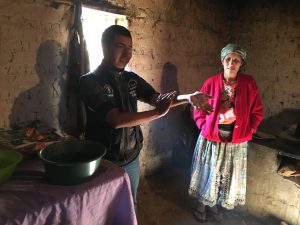
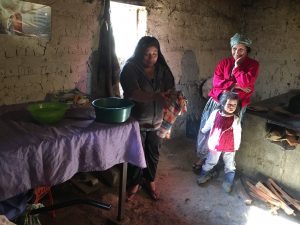
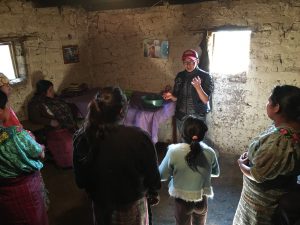
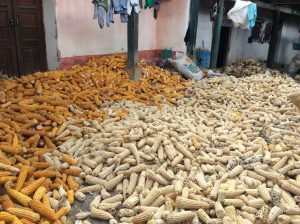
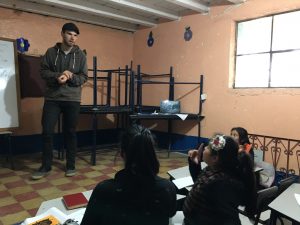
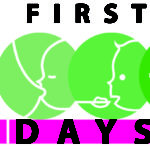
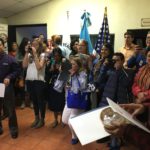
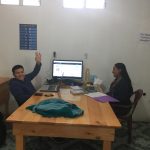
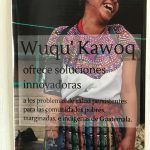

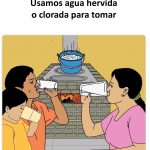
Emilio Fernandez
November 4, 2016 — 10:00 am
Good morning, how are you?
My name is Emilio, I am a Spanish boy and I live in a town near to Madrid. I am a very interested person in knowing things so different as the culture, the way of life of the inhabitants of our planet, the fauna, the flora, and the landscapes of all the countries of the world etc. in summary, I am a person that enjoys traveling, learning and respecting people’s diversity from all over the world.
I would love to travel and meet in person all the aspects above mentioned, but unfortunately as this is very expensive and my purchasing power is quite small, so I devised a way to travel with the imagination in every corner of our planet. A few years ago I started a collection of used stamps because through them, you can see pictures about fauna, flora, monuments, landscapes etc. from all the countries. As every day is more and more difficult to get stamps, some years ago I started a new collection in order to get traditional letters addressed to me in which my goal was to get at least 1 letter from each country in the world. This modest goal is feasible to reach in the most part of countries, but unfortunately, it is impossible to achieve in other various territories for several reasons, either because they are very small countries with very few population, either because they are countries at war, either because they are countries with extreme poverty or because for whatever reason the postal system is not functioning properly.
For all this, I would ask you one small favor:
Would you be so kind as to send me a letter by traditional mail from Guatemala? I understand perfectly that you think that your blog is not the appropriate place to ask this, and even, is very probably that you ignore my letter, but I would call your attention to the difficulty involved in getting a letter from that country, and also I don’t know anyone neither where to write in Guatemala in order to increase my collection. a letter for me is like a little souvenir, like if I have had visited that territory with my imagination and at same time, the arrival of the letters from a country is a sign of peace and normality and an original way to promote a country in the world. My postal address is the following one:
Emilio Fernandez Esteban
Avenida Juan de la Cierva, 44
28902 Getafe (Madrid)
Spain
If you wish, you can visit my blog http://www.cartasenmibuzon.blogspot.com where you can see the pictures of all the letters that I have received from whole World.
Finally, I would like to thank the attention given to this letter, and whether you can help me or not, I send my best wishes for peace, health and happiness for you, your family and all your dear beings.
Yours Sincerely
Mateo
November 5, 2016 — 7:40 am
Hi Emilio, I like your blog! I will send a postcard to your address, hopefully it will get there soon as the mail is slow in Guatemala. I once lived in Segovia and Madrid. Matt